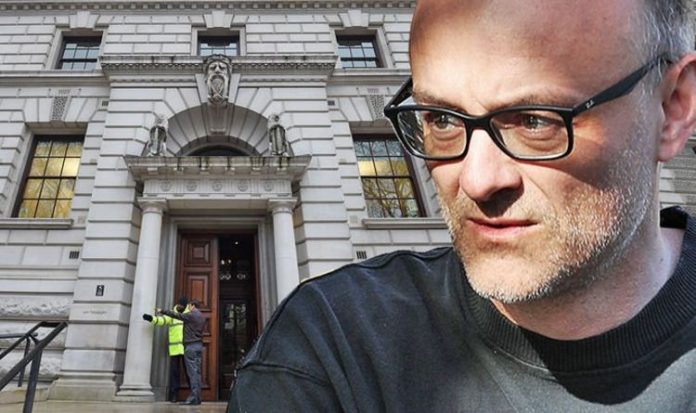The announcement that Sir Mark Sedwill, the Cabinet Secretary and National Security Advisor, stepped down in late June can be seen as the most high profile indicator that a revolution will be sweeping through Whitehall over the next four years. Sir Mark will have to be replaced, under Civil Service Commission rules, by another permanent or former permanent secretary – but the role of National Security Advisor has already gone to David Frost, who is currently leading the Brexit negotiations with the EU and is a darling of the Vote Leave movement. It came as Prime Minister Boris Johnson’s controversial chief advisor Dominic Cummings was reported to have warned that a “hard rain” would soon fall on the civil service.
Moreover, during a lecture in July, Minister for the Cabinet Office Michael Gove laid the intellectual groundwork for the shake-up, in which he set out what he regards as the main faults in the Whitehall machine.
Mr Gove, Mr Johnson and Mr Cummings appear to be showing a united front, driven forward by the belief the country needs deep reform to succeed in a post-Brexit world.
As radical reforms are expected to soon take place, though, Professors of Public Policy Dave Richards and Diane Coyle argued a crucial piece of the jigsaw appears to be missing from their plan: the Treasury.
In a recent entry for the London School of Economics (LSE)’s blog, they wrote: “Wider arguments for a more devolved, bottom-up approach, consistently rub-up against the fact that macro-economic policy requires some form of centralised control.
“As one former senior Cabinet Minister eloquently put it to us: ‘…the Treasury is the Ego of the national psyche and there is no nice reform that gets us round this.’
“If real reform is to be realised and a meaningful break from the traditions [and pathologies] of the Whitehall model provided, then an alternative to the powerful, centralising, controlling force the Treasury holds over the rest of Whitehall is needed.”
Mr Richards and Ms Cole noted that Mr Gove’s critique during his lecture was somewhat limited in ambition.
The Chancellor of the Duchy of Lancaster was quoted as saying: “‘At the heart of our programme must be a focus on what works – what actually helps our fellow citizens to flourish. And that means, as I have emphasised, rigorous evaluation of Government programmes. What value do they add? What incentives do they provide for better performance and better service to others? The Treasury in the UK has been, historically, very good at questioning the cost of projects, but not their broader social value.”
JUST IN: Donald Tusk warned Brexit would end ‘Western political civilisation’
The two Professors continued: “One aspect of this is the Government’s confirmed review of the Green Book rules on investment programmes as part of its levelling up agenda.
“However, meaningful Whitehall reform is conterminously linked to the need for real fiscal devolution.
“Yet as the Kerslake Report noted: ‘…the UK system of spending control remains one of the most highly centralised in developed countries.’
“As highlighted above, there is an established pattern of different governments rhetorically appealing to the need for greater devolution, but then baulking at the potential power give-away this might involve.
“The Treasury has been as guilty as any in all of this. This, then, has led to an approach that sustains a key element of the Whitehall model, that of central control to the detriment of a more pluralised, responsive, and devolved model of governance.”
DON’T MISS:
EU at risk of collapse? Gisela Stuart unravels EU’s key to survival [EXCLUSIVE]
Insider predicts FAILURE of Cummings’ Whitehall revolution [INSIGHT]
Poland ‘problematic member’ in EU’s fight for future [ANALYSIS]
They concluded: “In a climate of uncertainty, the fear is that a set of re-centring tendencies have developed, with the Treasury continuing to seek to exert control over the fiefdoms it surveys.
“It is hard to imagine a reforming zeal can be sustained, when confronted by this dynamic within the civil service machine.
” If, therefore, there is little that is novel to be found in Gove and Cummings’s agenda, today’s reformers might do well to focus on why talk of reform has been continuous for over 50 years.”







